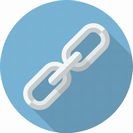10 Tips for Choosing the Best Domain Name
A memorable domain name is one of the greatest weapons in a webmaster's arsenal. It makes promotional efforts stick, it gives the website a sense of authenticity and authority, and it prevents competitors from latching onto the idea later. Finding an official domain name can be frustrating though, especially with so many good ones already taken. Make it easier by coming up with something that's unique to your particular website. Learn from those who came before you, and listen to these ten tips for picking perfect domain names.
1. Use descriptive keywords
And what is a domain name really, except for an address that directs the world to your corner of the Internet? Your domain name is your online address, and unlike the street grids and house numbers of real-life contact info, this one has to be as easy to find and remember as possible. It also has to say something immediate about the business or brand, whether that's a call to action, a reminder of the services you provide, or a clever pun about your city. In order to make sure it pops up in search results and describes exactly what you want it to, brainstorm keywords and then get creative with the most important ones.
2. Make sure it's a dot com
It's not mandatory for every successful website to have a domain that ends in ".com". However, it's the wisest move for websites that want to stay visible, because it's still the default for URLs. Your contacts will only have to plug the domain name into the address bar to find you, instead of digging for your card or copying and pasting a link.
3. Keep it short
It might sound counter-intuitive to pick a domain name that's both descriptive and brief, but good keyword phrases are short anyway. If you can find two or three words that sum up your website and are catchy enough to remember, that's great, but one word is even easier to type and remember. Shorter URLs can also weather character limits better, facilitating more social media sharing.
4. Don't copy anyone
Be careful about getting creative with recognizable names and brands, because copyright infringement doesn't make for good PR. In fact, you might be copying another business without even realizing it. Before you finalize any domain name registration, check the phrase for copyrights first.
5. Don't be impulsive
Your domain name will quickly become a part of your online image, so it's important to find one that will work forever. You don't want to be inconsistent by changing your domain name later, especially if customers get used to looking you up that way.
6. Be appropriate
It's good to get creative, but you also want to make sure your name is relevant and appropriate to your particular demographic. If your domain name involves funny word play, you'd better be positive that your target audience will understand it.
7. Stick to the alphabet
Simplicity is best, especially if you want your domain name to be memorable and easy to look up later. Leave out the numbers, symbols and punctuation marks.
8. Make it memorable
Rhymes, keywords, and brief phrases are good ways to make your domain name easy to remember. To make sure it will stick in people's heads, share it with friends and family members and ask them to recall it a few days later.
9. Avoid alternate spellings
Again, you want people to type your domain name into their browser and find your website on the first try. Don't incorporate intentional misspellings or clever abbreviations that could throw them off.
10. Try different combinations
You might settle on the perfect domain name, only to find out it's already registered by someone else. Don't give up on it just yet. Try different combinations of the same phrase, or add words like "the", "a", "my" or "your" onto the front of it. If the other website isn't active or doesn't have anything to do with yours, no one will get the two confused and you can still take advantage of the phrase you found.
What does domain registration privacy mean to you?
The Internet Corporation for Assigned Names and Numbers (ICANN) requires that all domain name registrars provide a publicly accessible record that contains the owner’s personal information. This information is a WhoIs record of the registrant and his or her contacts. Some of the information includes name, address, phone number and email address. A domain privacy service allows you to hide your WhoIs information.
Other information available on WhoIs is date of domain registration, when the domain will expire, where the domain is hosted as well as other technical information. The information for your domain registration is viewable through several tools available on the internet.
Why are WhoIs records public information?
ICANN uses the information you provide for legitimate purposes, such as the verification of ownership of a domain name in case of a transfer request. The information is also critical to law enforcement agencies that may be carrying out investigations into illegal activities carried out over the internet. Some individuals or companies can also use WhoIs information to get in touch with domain owners who are violating property rights, such as copyrights.
What is the problem?
Since the information is readily available immediately after you finish registering your domain, this leaves you susceptible to telemarketers and spammers. The individuals are likely to harvest your information, exposing you to unsolicited and unwanted contact. Since your personal information is available on such a public forum, you are also at significant risk of identity fraud and theft, as well as the possibility of stalkers and harassers getting in touch with you.
Unethical companies have also been known for checking domain expiration dates and sending official-like renewal notices. This is an attempt to have domain owners transfer domains to their firms. Other questionable services one is likely to receive include invoices for service solicitation for search engine submissions.
What should you do to protect your WhoIs registration details?
Domain registers offer a service privacy protection. Once you choose privacy protection services, personal information is not listed in the WhoIs record. The information people get to see is your registrar’s privacy service. However, you still own the domain.
Advantages of domain registration privacy protection
Some of the advantages you reap from domain privacy include:
• Protection against identity fraud and theft.
• Prevention of unwanted direct sales letters and mails bombarding your postal address.
• All your personal contact information is kept confidential.
• You will never receive unsolicited commercials emails.
• It is an excellent way to prevent unwanted phone calls from telemarketers.
Downsides of domain protection
It is critical that you are aware that once you have protected your domain name, you will need to remove the protection if you need to transfer it to another individual or company. This process might require dealing with some red tape.
Some consumer advocacy shows advise clients to check WhoIs records to find out if a business is legitimate before dealing with them. However, one positive step around this problem is ensuring that you provide your customer with as much information as possible. This will negate the need of the client checking WhoIs registration to get your contact information. Another way is providing your customers with a means of getting in touch with you via social networking sites, like Facebook and Twitter.
How to Effectively Manage an Online Forum
- Posted by Livecity In category Blog & Forums
At first glance, most popular forums seem completely autonomous; active users regularly generate new content and discussions while the community usually finds ways to regulate itself. However, almost all forums require some form of regular moderation to ensure that users stay active and true to the intended purpose of the forum. While forum moderation isn’t always an easy job, it can be greatly rewarding with the right team and a solid protocol.
1. Build a moderation team
The first step in managing any forum is to establish a moderation team. While smaller forums can usually get by with a single administrator, increased activity will warrant a larger team of moderators. Moderators typically have the power to enforce forum rules and even control user privileges, but they usually don’t have the same degree of power as an administrator. Of course, this can usually be configured depending on your chosen forum software.
Some of the best moderators come from within the community itself. Look for users who are especially passionate about the forum and already take an active role in helping users. These people are often the best candidates for maintaining the forum since they already love being an active member of the community. If you’re a business offering support for your products, considering giving moderator privileges to select employees.
2. Establish forum rules and encourage quality posts
Forum rules don’t need to be too complicated nor should they be too lengthy. Most forums have the same basic set of rules, usually requiring that users stay polite and on-topic. These rules can be posted on a bulletin board at the top of each forum for everyone to see. By establishing and enforcing these rules, they’ll typically go unbroken, and the community will swiftly deal with violators.
3. Keep out the spam
Spam can come in two forms: off-topic and nonsensical posts by users or, most commonly, advertisements from automated user accounts. While the former is easily dealt with, stopping malicious advertising programs from taking over your forum can be a difficult endeavor. Most forum software has an option where all new user accounts must be approved by an administrator before being given posting privileges. This can be a very effective way of keeping out spam, but it can often take a great deal of time away from more important moderation activities. Regardless of how you choose to prevent “spambots,” make sure to ban their accounts and delete their posts as soon as they pop up.
4. Stay active and involved in the community
Staying active and involved on your message board builds goodwill among users and helps set an example for others to follow. Administrators and moderators also hold the power and clout to drive new discussions.
5. Monitor forum traffic
While having too much traffic isn’t necessarily a bad problem, it can adversely affect forum performance if left unchecked. Keep a close eye on traffic and purchase more powerful hosting plans if necessary. While hosting fees are often expensive, the rewards from maintaining an active and popular forum will greatly outweigh the costs.
How managing a forum can improve your SEO efforts
- Posted by Livecity In category Blog & Forums
A forum that is search engine optimized will bring more traffic to your forum and your website. Search engine optimization (SEO) basically makes it easier for search engines and people to find you. The forum or message board, and its individual sections, threads and posts, can all be optimized with keywords and phrases just as your web pages are SEO-empowered.
Optimizing the forum to improve your overall SEO efforts is accomplished through a multi-pronged strategy. The first and most important is good content in the forum. Good, high quality content on forums, message boards and the website itself are mandatory to attract and retain internet traffic and convert them to buyers or readers.
The strategy should also include embedding appropriate keywords and meta tags for all pages, including the forum and message board and all threads within the forums. Instead of vague terms as titles for forum threads, use keyword specific titles that are search engine-friendly. How is a search engine to know you have a 52 post thread on Hawaiian luaus exploding with quality content and must-know information if the title reads, “Let’s Dance”? Imagine if Rebecca in Long Island desperately needs to find information on the topic exactly like yours but she has no clue you exist. Whatever will she do? Most likely she will use the search engine to look up “Hawaiian luaus.” If your thread topic is “Hawaiian luaus” and the meta tags match, and the topic title is repeated throughout the 52 posts in the threads, most likely she will find your good content on page one of a search. “Eureka!” she exclaims, and so do you.
Threads are conversations between members of your forum or bulletin board, but they are also invaluable internet real estate and advertising space. Embedding links to videos helps content go “viral” or get passed around to others on the Internet. High quality content, rich with video links and good graphics, will get linked to far more than uninteresting or unappealing content. Make it sizzle and encourage sharing by giving people what they want and need.
Companies like LiveCity.com offer forums and bulletin boards as part of their overall services. With their drag-and-drop website building tool, creating a website and forum are easier than ever before. There’s no need to hire an expensive computer engineer when you can do it yourself using this user-friendly software.
Building SEO into your threads and pages is done with the specific aim, of course, to drive traffic to your website, which in turn will increase sales. But it also helps the people who need this information find you easier.
John Rampton's “SEO Guide for Forum Owners: Dos and Don’ts,” has a lot of helpful hints.
If you’re completely new to SEO, then reading “How Google Search Works” will help you get up to speed on how optimizing your website generates more traffic. Per the tutorial:
“Googlebot processes each of the pages it crawls in order to compile a massive index of all the words it sees and their location on each page. In addition, we process information included in key content tags and attributes, such as Title tags and ALT attributes.”
Make sure that you interlink within threads in the forum / bulletin board / message board to other pages of your own website. Sprinkle these throughout the forum threads. Interlinking between your own web pages as well as linking to relevant authoritative outside websites can help increase ranking, traffic, views and ultimately sales and participation.
Why you need a forum on your website?
- Posted by Livecity In category Blog & Forums
There are many reasons why you need a forum on your website, but here are just five that stand out:
1. Forums offer trustworthy advice and recommendations from people who care enough about the business, product or service you’re offering to become a member. That kind of word-of-mouth advertising is invaluable to your business. If it’s carefully moderated, the forum can provide a place for a great exchange of ideas and dialogue that can only help you and your clients or customers succeed.
2. You can also make money with a forum (or bulletin board, which is the older name for the forums of today). Forums are a great way to earn extra income. According to the Q-4 Content-Commerce Report by VigLink, the operators of ForumCon (a global conference for forum owners), the only thing that outperforms websites with forums as moneymakers are deal and coupon sites. By their statistics, forums outperformed editorial sites and blogs by 50%. Oliver Deighton, VP Marketing with VigLink said, “The forum category itself is enjoying an exciting wave of innovation. NextDoor, the red-hot hyper-local online community and social network, is growing like crazy.” How do you make money with those irresistible threads of information on the forum? Many forums use ad revenue, but savvy publishers today are choosing not to inundate their visitors with ads but to monetize loyal customers through affiliate links within the forum thread.
3. A forum provides you with keen insight and marketing data about your customers. Knowing who is visiting your message board and why provides valuable marketing information for your business. You’ll also be able to learn, by threading various topics, what your customers need from you, what are they looking for that you could provide, and so many other insights that nothing but a live forum (or a one-on-one conversation) could provide. Everything from surveys to Question-and-Answer threads are possible on your forum and you can pick topics, establish the thread, monitor the threads, and plan your marketing strategy right from the comfort of your home computer.
4. Forums / message boards are excellent for the search engine optimization (SEO) purposes of your website. Just as you introduce threads to gain marketing insight, you can optimize the title and content of each thread with keyword phrases to increase traffic. So not only do you have the SEO of your individual webpages working to bring in traffic, but every thread in the forum is a potential SEO magnet.
5. Last but certainly not least, forums, message boards and the faithful bulletin board establish community spirit and camaraderie, build trust, and open new lines of communication between you, the members and strangers that otherwise would never meet. The forum provides a place for like-minded people to get together and do great things that can change the world for good. It’s like the corner store or the town center of old. This is the place where minds meet, ideas are born, information is shared, and people are advanced. Yes, your forum can do all that.
Deciding whether or not to put a forum on your website is easy when you consider all the advantages. With LiveCity’s software, forums and message boards are available, and adding them is so easy that anyone could do it. You can start free with their drag and drop website builder and be online in no time. With just a little bit of planning, some dedication to moderating and thoughtful execution of your forum, you just might have the next “red-hot” online community.
10 forum building tips
- Posted by Livecity In category Blog & Forums
So you want to build a forum for your website, and ride the wave of forum revival to a money-making cash machine website, or you just want to build a jumping online community? Great, let’s get started.
1. Building a forum is as easy as child’s play if you choose a webs te-development software such as LiveCity.com. With their drag-and-drop, free website building tools, you can actually create your own website, and select from hundreds of professional templates. Forums or message boards are one of many website add-ons offered by the company, and are even easier to create than the website.
2. Actually creating the forum and bringing it into existence is the easy part. Now you need to optimize it with the proper keywords, alt and meta tags. If you know absolutely nothing about search engine optimization (SEO), you’ll need to read up on it. Google offers free tutorials. In brief, search engine optimization is the science of selecting specific words and phrases that people might use on a search for you, your product or topics. Every page of your website should be optimized, the forum or message boards should be optimized and the individual threads and posts should be optimized. This is not as hard as it sounds. Imagine each forum thread as a mini internet billboard and each section and thread title as larger internet billboards, and then the forum itself as a huge roadside internet billboard.
3. Appropriately name the threading topics so that they are specific and keyword-rich. If a forum thread is about “How to Make Cranberry Chutney” then it should be so named, rather than “Good eats.” One title is vague and the other is specific.
4. Within the message board threads, find opportunities to create links to other pages of your website. Interlinking builds credibility with the search engines and will help you get more traffic. Linking out is also good if you find an authoritative site with similar information. The best links of all are when people find your content so fascinating that they share it with others via social media. That is how traffic is generated.
5. Aside from SEO best practices, there are other ways to build your forum. Invite all your existing customers and website users to the forum. Provide a prominent link on the homepage with information on what it’s all about. Make it easy for people who already buy from you to become a member of the forum. Send out invitations to your mailing list and post it on all your social media accounts.
6. Guest posting on other people’s blogs, in internet magazines/ezines, or commenting on other websites can give you an opportunity to share a live link to your forum or message board. This gives your forum greater exposure.
7. Add the forum URL to all of your marketing materials, whether print, radio, TV or online.
8. Invite your own friends and family members to the forum community.
9. Paid advertising is an option to increase traffic and build your forum. Perhaps one of the best opportunities in this respect is Google Ads. Organic search traffic is free, though, so keep up the SEO tactics and you may place on page 1 of a search engine and get all the forum-building impetus you needed.
10. Actively moderate your forums to screen out spammers and X-rated comments. Nothing turns people away more than a bulletin board or forum that is filled with spam, especially if nobody ever cleans it up or bans the spammer.
Once you have built your forum, you will want to maintain it and grow it by continuously adding high quality content and moderating threads. Encourage video links, interlinking to internal webpages, and participation with specific topic threading. You may find that you want to actually make money with your forum and that is possible too, with ad revenue or affiliate links among the most common forum revenue generators.
What Are Backlinks and How Do I Use Them?
If you’ve read even one article about search engine optimization (SEO), there’s a good chance that you’ve heard about something called a “backlink”. However, despite their prominence and importance in today’s SEO practices, they tend to be a mystery to many people. Once you know what backlinks are and how to utilize them, they can be one of the most powerful tools in your SEO tips arsenal.
What is a backlink?
Simply put, a backlink is a link to your website from another website. If popular enough, a single website can have hundreds – if not thousands – of backlinks coming from a wide variety of other websites from across the web. This comes with a multitude of benefits: links to your website generate more traffic and tell search engine crawlers – automated programs that evaluate websites for search engine ranking – that your website is popular. In modern SEO practices, popularity is very important, and popular websites are, as a result, more likely to receive a higher search engine rank.
Unfortunately, there’s more to increasing search engine ranking with backlinks than just posting links to your website across the web. If it were that easy, quantity of links would determine search engine ranking, presenting a number of problems. While quantity of backlinks is certainly an important factor, quality plays a much bigger role.
What makes a high quality backlink? A backlink’s quality is directly related to the quality of the website hosting it. As a result, backlinks from websites with poor rankings or bad reputations will have a minimal impact or, even worse, negatively affect your ranking.
How do I get and use backlinks?
Unless you’ve built a popular network of high-ranking websites that you can post links between, there are few instances where you’ll be able to create enough backlinks by yourself to raise your search engine ranking. It’s important to keep in mind that the best backlinks come from other websites; as a result, you’ll need to give other websites a reason to post a link to your website. Thankfully, there are a few effective strategies to do so:
- Generate great content. In the majority of cases, people will share links because they’ve seen or read content that they like. While you might not be able to appeal to everyone, producing and maintaining high quality content on your website will make others more likely to share links to your page. The better and more popular your content becomes, the more backlinks you’re likely to get.
- Utilize your social media accounts. Posting links to your website or new content on a variety of social media accounts not only gives you a few high quality backlinks to work with, but it may also encourage your followers to explore and share your content.
- Make guest posts on blogs relating to your website’s message or brand. Making a guest post on a related blog often gives you the opportunity to post a link to your website, giving you a valuable backlink and an opportunity to generate more traffic.
what is a domain name?
Domain Name 101: All the fundamentals you should know
One common question every potential web owner asks is what a domain name is. Briefly, a domain name system or DNS is a worldwide-recognized system of assigning addresses to internet hosts (also known as internet web servers). Somehow, like international phone numbers, DNS aids to provide internet servers with memorable, easy to spell addresses. At the same time, domain names help hide the technical Internet Protocol (IP) addresses.
While IP addresses provide exact addresses of the location of a website, domain names act like a cabbie you ask to take you to a specific address, and you get there. Domain names, therefore, provide you with an easy way to reach a particular website without having to remember the exact numeric addresses.
Domain names consist of at least top-level and second-level domains. The top-level domain (or TLD) is that part of the name that is located to the right of the dot. The most common TLDs are .org, .net, and .com. Most domains, sometimes called extensions, can be registered by anyone.
A second-level domain (SLD) is that portion of a domain name located immediately to the dot’s left side and domain extension. For example, for a website addressed, myreallycoolsite.com, the SLD is myreallycoolsite.
A domain name is representative of a physical point available on the internet – the IP address. The Internet Corporation Assigned Names and Numbers (ICANN) governs the coordination of domain names and IP addresses over the internet. This coordination allows you to locate websites quickly without having to enter IP addresses in your web browser.
Understanding the IP address
The internet protocol address is a unique string of number, such as 62.219.12.166, provided to every individual network, server, and network on the internet. Like an address is used to identify a home or business, the IP address is critical for the identification and location of the information on the internet. The address is also used for supporting communication between networks and devices on the internet.
What is the “WWW” before domain names?
The “WWW” is the subdomain and not part of domain names themselves. For example, when you set up your www and CNAME to point at a particular primary record, your site should be available both at myreallycoolsite.com and www.myreallycoolsite.com. Should your new site be un-reachable without the www, then the CNAME could have been setup incorrectly.
How domains work
Once visitors want to enter your site, they will need to enter the domain name into a web browser, and the browser locates the IP associated with your domain name. It is easier for people to remember your domain name compared to a series of numbers.
What is domain name registration?
Domain registration does not activate your website automatically for visitors when they enter the domain name you chose. Your domain name needs to be associated with a numeric address (IP address) for visitors to get a chance to use your domain name.
After registration of your domain name, you can use it for several things including:
- Holding on to it when you are not sure what you want to do with it
- Protecting your brand online by registering several brand names to prevent others from registering similar names
- Selling it since unused domain names can be an excellent investment
- Completion of registration and setting up your website
How to build a successful online forum from scratch?
- Posted by Livecity In category Blog & Forums
Maintaining an online forum is one of the best ways to drive sales, develop brand reputation, and promote goodwill with your customers. Some of the world’s most successful businesses, such as Microsoft and Apple, maintain active forums to provide support and a place for discussion for their customers. Building a successful forum, however, isn’t always easy; in fact, it can be downright daunting when your forum has zero users. While a successful forum can take months – if not years – to build, the following steps should set you in the right direction.
1. Use the right software
The backbones of any successful forum are a functional website and the forum software itself. Today, many companies such as Livecity provide an easy way for people to build a modern and standards-compliant website with little to no coding experience. A good website will not only better promote your brand but also provide a convenient gateway to the forum.
When it comes to forum software, there are a wide range of options. Some of the most popular include the free-to-use phpBB and the pay-per-use vBulletin. While most software will provide the same function, be sure to do plenty of research and find the package that works best for you.
2. Find a niche and stick to it
Many forums make the mistake of trying to cram too many subjects into a single message board. While trying to appeal to as wide of a user base as possible is certainly a good intention, it can result in the forum being overly-diversified to the point where it becomes confusing and crowded.
Instead, try to keep the number of message boards on your forum to a minimum and have them revolve around a single niche. The niche doesn’t always need to relate directly to your brand, but make sure it’s relevant and provides users with a reason to be active on the forum.
3. Reach out to potential community members
Building the forum is only half the battle: The next and arguably most difficult half is finding your users. While starting out can be difficult, remember to stay genuine while user-hunting; posting threads under fake user accounts is not only dishonest, but it can also be very obvious to potential members. To help gain an initial membership, try to reach out to friends or associates interested in your niche and use the forum as a “home base” for discussion.
4. Produce good content
For the foreseeable future, good content will remain the driver of good search engine optimization (SEO). When it comes to forums, developing good content means maintaining a genuine user base and keeping advertising bots – programs sent to maliciously advertise on your forum – at bay.
5. Maintain a good support network
One of the biggest reasons why users go to forums in the first place is for support and troubleshooting. As a result, being an active and helpful administrator while providing your users with good support resources is essential to maintaining an active user base and driving sales. Be sure to maintain an up-to-date bulletin board featuring popular support resources, such as a thread on frequently asked questions about your niche or product.
5 main rules of good web design
- Posted by Livecity In category Web Design
Web design is a skill that embraces both the artistic and the scientific, sticking to the rules of computers while finding creative ways to make an impression. After a couple decades of fast-paced exploration, and trial and error, there's plenty of proof that some design techniques work better than others. Whether you're using Livecity to design your very first website or wanting to refresh your existing one, the same basic rules apply. There's no surefire recipe to design the perfect website, but if there was, the following five ingredients would be essential. If you can master them, you'll know how to make a website work for any demographic or industry.
1. Compatibility
With so many mobile devices dominating the consumer market, this one is more essential than ever. Your website absolutely must be compatible with different internet browsers, mobile devices, screen sizes, and operating systems. If the text trails off-screen or is too big or small to read for some people, it might as well be in another language. If you embed videos or graphics in scripts that most people don't use, they won't know why there are gaps in your page. To avoid this, you can code a distinct style sheet for each platform, or take advantage of an automatic optimization tool.
2. Readability
Compatibility plays a big role in how readable a website is, but there are other rules you need to keep in mind too. The most responsive web design is easy on the eye, letting readers get straight to the content and keep reading without distractions or eyesores. Left-aligned text is the easiest for Western readers, so don't center everything on the home page. The text needs to be simple, too, so stick to three fonts or fewer, and avoid clashing colors or dark backgrounds. Take up the whole window to make your information as accessible and prominent as possible, and of course, proofread thoroughly for any typos or misspellings.
3. Consistency
Your formatting should be consistent throughout the entire website, so if you're not working within a set template, make sure your design tweaks apply to every single page. The color, size, and position of your headers shouldn't change from page to page, and the size of your font shouldn't change from paragraph to paragraph. Even the numbers and punctuation should be uniform; don't use Oxford commas half the time, or write out "nine" and put the numeral in the next paragraph. Just remember: reading the whole site should feel seamless, not erratic.
4. Organization
Every example of good website design includes layout and display decisions that make the website easy to navigate. Readers shouldn't have to hunt for any information, especially if they want to contact you, make a purchase or explore the pages within your website. You can ensure a responsive design by putting your most important content first, tagging blog posts, providing a navigation menu on every page and placing important elements like forms and links in intuitive places.
5. Content
This might sound like a no-brainer, but it sometimes gets lost in the rush for lucrative keywords and user-friendly formatting. High-quality content is the only thing that will make your website last. Good web design incorporates polished fonts, high-resolution images, error-free text, and a server that can support instant downloads. Don't skimp on one part of the process or procrastinate on building good content. Promotion is just one step of the process, and it won't pay off if there's nothing solid to promote.
10 Ways to Improve Any Website
- Posted by Livecity In category Website Builder
Our website design people are often asked a simple question by folk they know, and it’s this: “What’s the one thing I should do to improve my website?”. Of course, there isn’t a single answer apart from the standard response we’ve carefully taught everybody: “Get our team here at Livecity to create it for you”!
In reality, there are many way to improve a business website. Here, in no specific order, are ten key questions, and they’d act as a terrific quick test as you examine your own:
1. Is your website ready to be easily viewed and used across a range of different platforms? Many have been designed purely for desktop or laptop, and can lose shape and focus when visitors try to access them using iPads or mobiles.
2. Does it quickly grab a visitor? When someone clicks through, their arrival should instantly be followed by a sub-conscious recognition of interest. Otherwise, they may head elsewhere.
3. Is it easy to navigate? People arrive at a home or landing page expecting to be able to move on. If the process is not quickly clear, you may have lost them again.
4. Is it consistently themed? A great advantage of our terrific range of templates is that your complete website is instantly themed through every page – each one showing it belongs to the whole.
5. Does it make full use of HTML5? Many older sites don’t. They are losing much of the flexibility and variety offered by the host of terrific new multi-device oriented features. Which brings us to the next question…
6. Is your website simply tired? You know them when you see them, a bit like those shops where their window displays seem still to be from another age.
7. Do you include all necessary information on every page? Make it easy for any visitor to take action, by providing the basic information about your business, starting with the identifying logo, and such key detail as opening hours, payment methods, location advice, contact methods and the like. It’s amazing how many still miss out the occasional important point.
8. Has your website been proof-read? If a single person creates and manages it, there is a danger that their brain will ignore any simple spelling errors and the like, simply because it knows what they meant to say! Make sure it’s checked – a simple error can prove disastrous to the impression you are aiming to deliver.
9. Is your use of fonts effectively controlled? You’ll see websites that look messy and cluttered simply because too many different fonts have been used. Content needs to be easily read, off-putting fonts bar the brain from doing so.
10. Are you making the most of ecommerce opportunities? This isn’t simply about making such offers, it's about the whole process from finding an item to completing the purchase and this should be both simple and user-friendly. Our Livecity team are highly experienced at the creation of stunning and complete, fully-productive, ecommerce sites.
Ten questions, each suggesting a way by which a website might be improved. If we can help with these, or any other areas, please use the Got A Question box on this page to start a conversation.
What is an HTML form?
- Posted by Livecity In category Website Builder
If you want to spice up your website or use it to gather important information, you can always rely on the versatility and usability of the HTML form. A staple on websites of every genre, this form can be almost anything you want it to be, but it's most useful as a marketing tool. Make better web design decisions by learning about the benefits and details of HTML forms.
Mixture of coding elements
Technically, an HTML form is just a part of a website that includes a variety of different design elements, nested together in one place. These elements are responsible for both giving and collecting information, and they might be text- or image-based. Your standard HTML form can include any of the following:
Text box - you provide summaries, label each entry field, and explain the form.
Entry fields for text - users can enter their own numbers and symbols into blank boxes.
Radio buttons - series of exclusive options.
HTML checkbox - text field that can be clicked, in a series with other options.
Drop-down menu - user can select from a list of prompts.
Link button - user can click it to submit the data or visit a new page.
These various elements work together as one unit, and they almost always get their own web page within the site. It's a good idea to eliminate distractions and focus on gathering accurate data, but don't make it too time-consuming by asking too many questions.
Versatile way to collect user data
Different sites have different uses for customer data. Bloggers collect readers' email addresses to provide updates and keep them reading, retailers promise exclusive sales to website members, and businesses offer everything from free quotes to coupon codes in exchange for a few pieces of contact information. If you want to collect user data for any reason, you can rely on an HTML form to do it for you.
Point-of-sale system for online transactions
Of course, the most useful data is usually financial information. If you want to conduct online transactions, your POS will almost always be an HTML form. You'll need to secure your customers' privacy by making sure your website is encrypted, especially if you're collecting credit card numbers or routing numbers. If you incorporate rich elements from PayPal or BitCoin providers, you won't even have to worry about handling the financial part at all.
Interactive content that drives user engagement
The information you collect with HTML forms doesn't necessarily have to be practical. Fun forms include quizzes, opinion polls, and sweepstakes entries, all of which require nothing but the user's time. Interactive content is always a great way to make people feel like active participants in your business, which in turn makes them more likely to share your website with others. People also like to feel heard, so you can show respect by asking for feedback. Solicit questions and comments with a feedback form, and respond to every submission to make sure there's continued communication between you and your potential customers.
What is Newsletter Marketing?
- Posted by Livecity In category PPC & Marketing
Unlike sales advertisements and marketing mailers, a newsletter is not perceived as a marketing ploy. It is viewed more as a means of communication and news publication. Newsletter marketing has been around for a long time. In times past, a newsletter read much like a small print newspaper or magazine. Today's methods of using sleek newsletter templates, interactive media, short but sweet calls to action make the newsletter as vital for marketing as any other method.
Newsletter Templates
The design of the newsletter templates chosen can make or break a newsletter's readership and engagement potential. Companies like LiveCity.com offer a line of professionally designed templates that anyone can use so there is no need for making one from scratch or paying thousands of dollars to a newsletter designer. Select your newsletter templates with care as it will help establish your brand identity and convey an overall sense of what you are all about. Carefree, conservative, vivacious or elegantly refined - the overall "feeling" imparted by the newsletter template's style is important too in the marketing world.
Why is the Newsletter a Good Marketing Tool?
A newsletter can be used as one part of an overall marketing strategy. The ways the newsletter can be used for marketing purposes are varied and limited only by your imagination:
- Offer the newsletter free on your website to entice people to give their name and email to build your mailing list
- Once you have built your mailing list, you can cultivate it. You will send the newsletter as promised but occasionally send an update or special sale bulletin. Don't abuse the privilege though or you risk being marked as spam.
- Within the newsletter, you have ample opportunities to encourage readers with live links, video links, calls to action and interactive media to entice them to engage with you, visit the website, follow you on social media (include ALL of your social media icons in the newsletter), learn more about the company or even to buy a product.
- The newsletter helps keep customers informed about company events, upcoming sales, fund-raising drives and what's going on "behind the scenes." All of this works to build good will, trust and brand recognition - all important parts of marketing strategies.
- Newsletters serve as reminders. Everyone has busy lives today. While someone may forget you exist for awhile, when the newsletter shows up in their in-box, they are reminded of you.
- Newsletters can be used as springboards for participation in online forums, webinars, social media and blogs.
- The email management service you use will have many marketing tools that provide you with insightful marketing data on your readers. The statistics will show how many readers opened the newsletter, how many clicked on a link to the website, how many readers made a purchase through the email, how many readers read a particular article and where these readers originated. All of these statistics are invaluable in helping you craft marketing strategies. When you know what works, you can roll out with more of the same to get the same or better results next time.
- Because of the statistical analysis tools available, newsletters are ideal "test labs."
- Newsletters make it easy to stay in touch with customers and people who are interested in your cause. Even though their physical address may change, most people keep the same email for many years and rarely change it. In this way, you can contact them long after postal or direct mail marketing would have failed.
- Newsletters are still the preferred communication tool of many people. You can always read email at your leisure. If you archive all issues on your website, then you can tweet links to the issues and include links in other social media posts or on your blog to attract more traffic and readership that prefers those venues over email.
Newsletter publication is an entire industry unto itself. Your newsletter can be small or grow to hundreds of thousands of readers. Incorporate newsletter marketing into your overall business strategy today and see if it works for you.
What is a favicon?
- Posted by Livecity In category Website Builder
Even if you don't know favicons by name, you know what they are. A favicon is a small website icon that is usually displayed in a browser's address bar, next to the URL of a site. For example, Wikipedia's favicon is a capital W on a plain white background. If you want to design a good website, you need to put some thought into the favicon that will follow it everywhere. Every time someone opens your website in a browser tab, types its URL into an address bar, or adds it to their bookmarks, they'll see it. That tiny graphic that accompanies your website's title is an essential part of your online image, so don't neglect it or settle for something generic. Put the right finishing touch on your website by selecting or creating a favicon that's fit to represent your website.
Easy way to brand yourself
What better way to start building your brand identity than by giving yourself a logo? The favicon is every website's constant companion, and it's a reflection of the website in every way: style, color, and creativity factor. Most businesses, publications, and online retailers have a simple and easily recognizable logo that doubles as their favicon; think fast food arches and the Google "g".
However, if you don't have or need a logo, your favicon is the closest you'll get to branding yourself. It will follow your website everywhere, making sure it doesn't get lost among other tabs or bookmarks, so it's your job to make sure it pops. If you have a niche website with a clear topic or theme, you might want to consider a simple and easy-to-recognize graphic that doesn't need very much detail. For example, one fashion retailer uses a stylized handbag, and an online music streaming service has a favicon that resembles a tiny radio.
Create your own favicon
You don't have to be a graphic designer to create a favicon of your very own. Because favicon size is limited to the pixels that fit in browser tabs and tool bars, you can create something simple on a larger scale before shrinking it back down for use. And if you do decide to design your own favicon, you can be sure your website always stands out. Instead of picking from a gallery of favicons that are generic or recognizable, you can brand your website with its very own favicon. This unique graphic can be your website's logo, your initials, or anything else that represents the spirit and purpose of the site.
There are multiple free favicon generators, but the most comprehensive is Favicon.cc. You can even pick from a gallery of thousands of open source favicons, open them up in larger scale, and tweak them to get a feel for the favicon-creation software. Add tweaks to a set of initials, borrow some simple geometric shapes and change their colors, or play with the generator until you've created a tiny logo that works for you.
Livecity added a favicon tool that creates an automatic favicon for every website. Activate it and play with the settings to see what we can create for you, or take matters into your own hands and teach yourself how to design a favicon of your own.
What is RSS, and why do I need it?
- Posted by Livecity In category PPC & Marketing
It doesn't matter how many people visit your website after a boost in visibility; if you don't retain their interest or stay relevant in their lives, they'll quickly forget about it. That's why RSS is such an important part of modern web design. Learn more about RSS, feed readers, and how you can benefit from syndicated updates.
What does RSS mean?
RSS is officially an acronym for Rich Site Summary, but many sources (including the United States government) accept the more telltale definition of "Really Simple Syndication". Either way, RSS is a form of online publication that pulls information from various sources in real time. These updates are delivered in the form of RSS feeds or channels, which compile all the information for users who subscribe to them or find them on a website.
What can RSS do?
So what's the point of pulling this live information? Well, if you're interested in marketing your website at all, social media is mandatory. Many modern RSS feeds tap into Twitter, Facebook, YouTube, and Instagram accounts, displaying relevant posts within another website. Businesses can use this to display their social media activity on an official website, but a simpler example is the scrolling feeds on everyone's Facebook timeline and smartphone home screen. This customized information is aggregated into one place for your browsing convenience, and wireless or data connections allow it to constantly refresh.
Should you install an RSS reader?
Adding an RSS feed reader to your website is an optional way to increase your visibility across multiple platforms. It gives your website a dynamic element, especially if you've included so many RSS sources that there are constant updates. You can even use one on your homepage, to compile the most important updates and entries before readers proceed to the full site. In fact, RSS readers are a lot like mobile-optimized sites, because they allow webmasters and individual users to curate the content they see and limit the irrelevant information in the periphery.
Why do you need an RSS feed?
To make your website count, you need to have a presence in other people's RSS feeds too. If you want to serve as an authoritative source on any topic, get people talking about your blog posts, or generate interest for deals and events, RSS is mandatory. If it's not easy for readers to subscribe to your website's RSS feed, you might not make the cut. When your updates reach them immediately, it keeps you relevant; it's impractical to wait until readers stumble across your website again, unless you can count on them to be entertained enough to bookmark it.
Does your website have an RSS feed?
There should be an XML file that contains the RSS data for your website, but if you don't know where or how to access it, your website builder should be able to help. You'll definitely want to make your website inviting for RSS readers and aggregates, so after you know how to access your RSS feed, you can add a button or link. The easier it is for feed readers to pull content from your website, the more eyes will be on every post you make.















